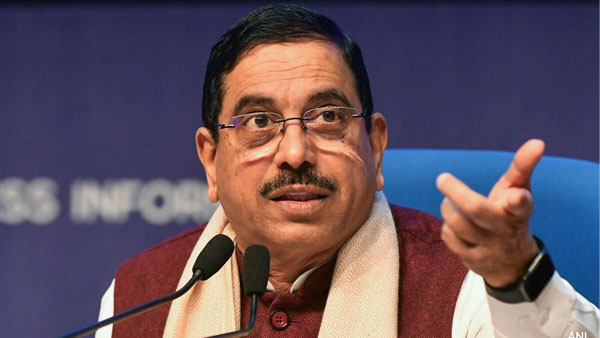By Dipak Kurmi
To speak of Zubeen Garg is to speak of a cultural force who transcends the narrow boundaries of state, language, and genre. An artist who has sung in more than forty languages, composed hundreds of unforgettable melodies, acted in films, written poetry, and stood on the frontlines of political protest, Zubeen is not merely a musician or actor; he is a phenomenon. For decades, his voice has not only entertained but also provoked, comforted, and galvanized. He represents both the restless spirit of Assam and the global aspirations of Indian popular culture.
Born on November 18, 1972, in Tura, Meghalaya, Zubeen Garg was destined for music. His birth itself carried a symbolic resonance: his parents, Mohini Mohon Borthakur and Ily Borthakur, named him after the legendary music conductor Zubin Mehta. From an early age, the rhythm of melodies flowed into him naturally. His father, a magistrate by profession but also a poet who wrote under the pen name Kapil Thakur, gave him literary grounding, while his mother, a singer, became his first guru. By the time he was three, Zubeen was already singing. His younger sister, Jongki Borthakur, later emerged as a singer and actress before her tragic death in 2002 in a car accident. This loss left a permanent scar on Zubeen, who dedicated his 2002 album Xixhu to her memory. His other sister, Dr. Palme Borthakur, remains one of his strongest supporters.
Raised in a traditional Assamese Brahmin family, Zubeen was expected to follow conventional paths of education. He studied at Tamulpur Higher Secondary School, then joined B. Borooah College in Guwahati to pursue a Bachelor of Science degree. Yet, the classroom could not hold him for long. Music called, and he dropped out to immerse himself in it fully. His apprenticeship was rigorous. He learned tabla for eleven years under Pandit Robin Banerjee, absorbed folk traditions under Guru Ramani Rai, and gradually expanded into multiple instruments — twelve in all, ranging from guitar and harmonium to mandolin and percussion. This technical mastery would later allow him to compose with astonishing versatility.
Zubeen’s first recorded songs — “Tumi Junu Pariba Hun” and “Tumi Junaki Hubakh” — appeared in the Assamese album Ritu in 1992, though the album was released in 1993. His true breakthrough came with Anamika, released in November 1992, which established him as a new voice of Assam. Follow-up albums such as Xapunor Xur (1992), Junaki Mon (1993), Maya (1994), and Asha (1995) deepened his popularity. By the mid-1990s, Zubeen was already Assam’s best-known singer. Before shifting base to Mumbai in 1995, he released his first Bihu album, Ujan Piriti, a massive commercial success that confirmed him as the highest-paid singer in Assam.
Mumbai opened a new chapter. In 1995, Zubeen debuted with the Indipop solo album Chandni Raat, marking his foray into Hindi music. Soon, he recorded a slew of albums — Chanda (1996), Shradhaanjali (1996–97), Jalwa (1998), Yuhi Kabhi (1998), Jadoo (1999), and Sparsh (2000). He lent his voice to Bollywood soundtracks too: Gaddaar (1995), Dil Se (1998), Doli Saja Ke Rakhna (1998), Fiza (2000), and Kaante (2002). By the early 2000s, he had become a familiar voice in playback singing.
The turning point, however, was 2006. In Anurag Basu’s Gangster, Zubeen sang “Ya Ali,” a hauntingly beautiful track that became a nationwide sensation. The song catapulted him into mainstream Bollywood consciousness and earned him the Global Indian Film Awards (GIFA) for Best Playback Singer. Even today, “Ya Ali” remains an anthem for listeners across India and beyond.
Yet, Zubeen never abandoned Assam. In fact, his dual life — one foot in Bollywood, another firmly in Assamese culture — has been central to his identity. He acted in Assamese films such as Hiya Diya Niya (2000), Daag (2001), Kanyadaan (2002), Agnishakshi (2003), Mon Jaai (2008), Rodor Sithi (2014), Mission China (2017), Kanchanjangha (2019), Ratnakar (2019), Dr. Bezbaruah 2 (2023), Sikar (2024), and more. In these films, he played diverse roles — from colonels to ordinary lovers — and frequently doubled up as director, producer, and screenwriter. Mission China, which he directed and acted in, became a landmark Assamese film, showing the commercial possibilities of regional cinema.
Parallelly, his Bengali career blossomed with songs in films like Sudhu Tumi (2004), Mon Niye (2010), and Samsara (2019). His linguistic dexterity allowed him to sing in Boro, Karbi, Mising, Tiwa, Nepali, Kannada, Malayalam, Tamil, Telugu, Marathi, Sindhi, Sanskrit, and even English. Few Indian singers have matched his range.
His music catalog is vast, but so is his social commitment. Zubeen runs the Kalaguru Artiste Foundation, which donates to humanitarian causes. During Assam’s devastating floods, he called on fans to donate clothes, medicines, and money. During the COVID-19 surge of 2021, he even offered his two-storeyed house in Guwahati to be converted into a COVID Care Centre. He has played football matches to raise relief funds and used his films, such as Kanchanjangha, to critique corruption in the Assam Public Service Commission recruitment system.
Politically, Zubeen is a paradox: irreligious and outspoken, yet deeply rooted in Assamese pride. He has said he does not follow caste or religion, even declaring once that “Krishna was never God but a man,” a statement that earned him a ban from Majuli District Satra Mahasabha. In another controversy, he claimed that Brahmins should be “killed” before apologizing. Despite backlash, he has remained unafraid of provocative stances. Most significantly, he became a leading non-political figure in Assam’s anti-CAA protests, embodying the anger and resistance of a generation.
Recognition has come both from within and beyond Assam. In 2011, the Assam Convention in Chicago honored him as Guest Artist of the Year. In 2024, the University of Science and Technology, Meghalaya awarded him an honorary Doctor of Literature (D.Litt.). Literary accomplishments complement his music: he has published Assamese poetry collections like Xabda Anubhuti (2009), Zubeenor Podyo (2018, 2020 edition), and won the Seuji-Seuji award for poetry in 2017. His cultural influence is celebrated in symbolic gestures — a bamboo bridge across the Na Dihing river named after him, a 20-foot statue unveiled by him in Digboi in 2022.
Zubeen’s personal life, though less public than his career, remains intertwined with art. In 2002, he married Garima Saikia, a fashion designer from Golaghat, Assam. Together they form a creative duo, often seen at cultural events. Despite immense fame, Zubeen continues to see himself as an artist of the people, accessible and committed.
The story of Zubeen Garg is not only the story of a singer or actor; it is the story of modern Assam’s cultural resurgence. At a time when globalization often homogenizes music, Zubeen has kept alive the distinctive flavor of Assamese folk, weaving it seamlessly into contemporary forms. His ability to sing a devotional bhajan, a Bollywood chartbuster, an Assamese Bihu number, or a Bengali romantic ballad with equal ease is a testament to his rare genius. He has been a bridge — between languages, between industries, between politics and art, between the local and the universal.
Even today, Zubeen’s concerts are electrifying spectacles where thousands sing along, not just because of his music but because of the emotions he represents. He is Assam’s voice, its conscience, its rebel, and its poet. For nearly four decades, he has stood on stage and told his people: you are not forgotten, your culture is alive, your language is worthy, your struggles matter. And that may be the highest form of artistry.
(the writer can be reached at dipakkurmiglpltd@gmail.com)




